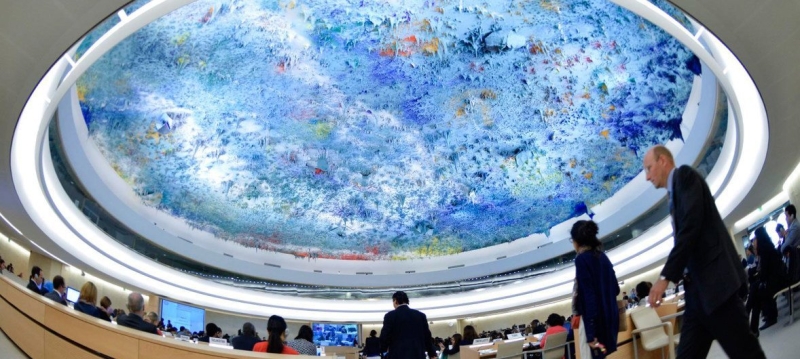
View of the Human Rights Council meeting room at the UN building in Geneva. UN independent experts: “Human rights must be our common DNA” Human Rights
Human rights must once again be the foundation of an inclusive, peaceful and sustainable future. This is stated in the joint declaration adopted at the 30th annual meeting of the Special Rapporteurs, Independent Experts and Chairpersons of the Working Groups of the Special Procedures of the Human Rights Council.
Calling for a deeper integration of the concept of human rights into all UN initiatives, the independent experts said that these ideas must once again take a central place in global processes.
The Future of the UN
“Human rights are not just words collected in various Conventions or Declarations; they are the foundation on which everyone can rely for freedom, peace, security and sustainable development,” the experts said. “Human rights must be our common DNA to build trust between the UN and those we serve, regardless of their identity, location and situation.”
Human rights defenders emphasized the role of human rights in addressing multiple contemporary crises, including armed conflict, poverty, inequality and discrimination, shrinking civic space, corruption, transnational crime, climate change, biodiversity loss, pollution, the impact of new technologies, as well as forced displacement and migration.
Attacks and underfunding
The experts also expressed concern about attempts to undermine their status and independence within the UN system. They noted that political will is needed to protect UN institutions and mechanisms, which are increasingly under attack. At the same time, representatives of the Special Procedures face personal attacks, as well as threats against their families.
The declaration calls for decisive action to address the severe underfunding of UN human rights activities, which receive only about 5 percent of the regular budget. “We call on States to live up to the expectations enshrined in the Pact for the Future and to ensure that the human rights protection system is properly resourced,” the experts said.
They stressed their commitment to helping the global community forge a shared vision in which human rights will provide “fertile ground” for building just, peaceful and democratic societies.
Special Rapporteurs, independent experts and working groups are part of what is known as the Special Procedures of the Human Rights Council. Special Procedures address either specific country situations or global themes. Special Procedures experts serve on a pro bono basis; they are not UN staff and do not receive a salary for their work. They are independent from any government or organization and serve in their individual capacity.
